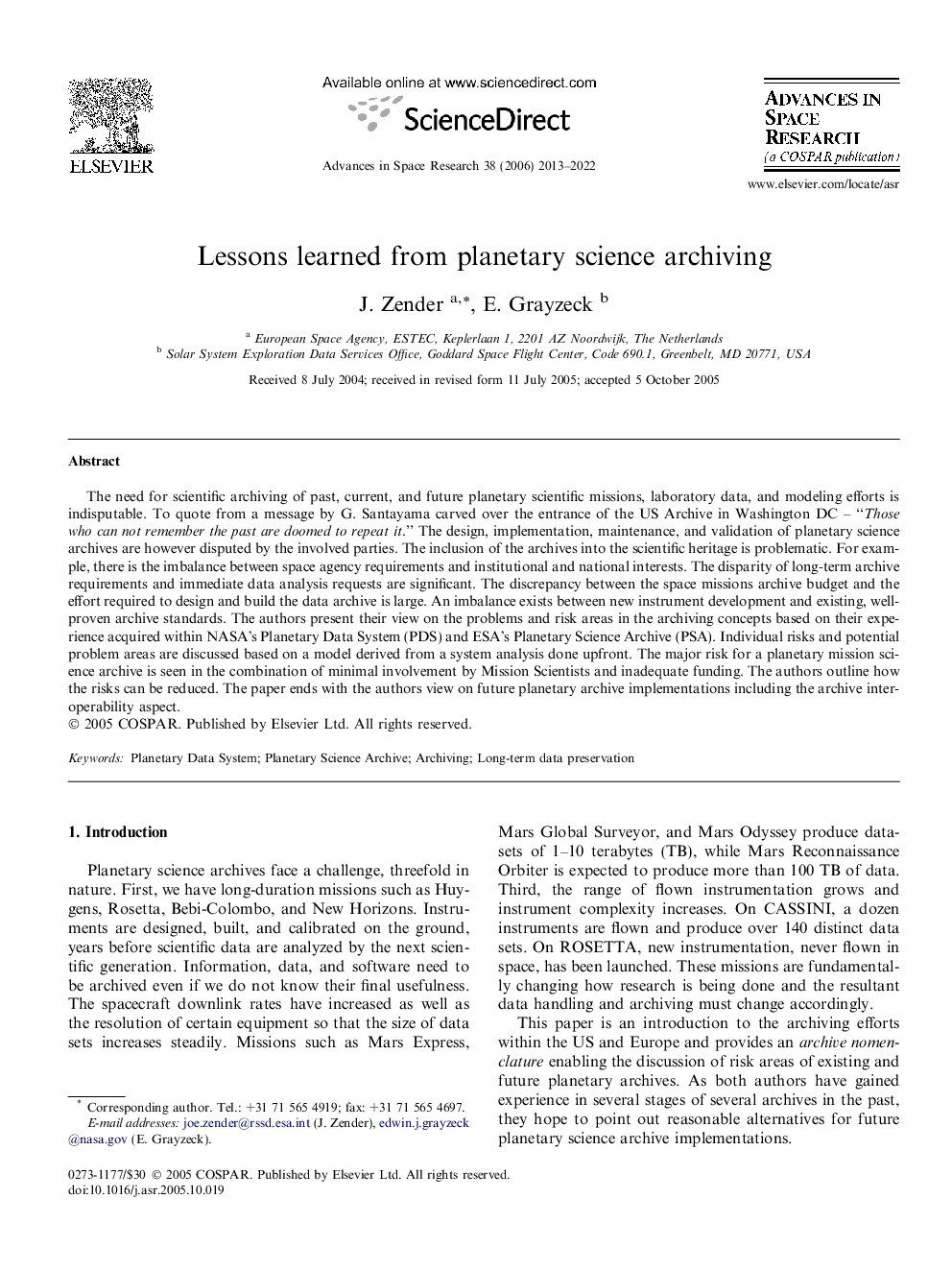| کد مقاله | کد نشریه | سال انتشار | مقاله انگلیسی | نسخه تمام متن |
|---|---|---|---|---|
| 1767960 | 1020209 | 2013 | 10 صفحه PDF | دانلود رایگان |

The need for scientific archiving of past, current, and future planetary scientific missions, laboratory data, and modeling efforts is indisputable. To quote from a message by G. Santayama carved over the entrance of the US Archive in Washington DC – “Those who can not remember the past are doomed to repeat it.” The design, implementation, maintenance, and validation of planetary science archives are however disputed by the involved parties. The inclusion of the archives into the scientific heritage is problematic. For example, there is the imbalance between space agency requirements and institutional and national interests. The disparity of long-term archive requirements and immediate data analysis requests are significant. The discrepancy between the space missions archive budget and the effort required to design and build the data archive is large. An imbalance exists between new instrument development and existing, well-proven archive standards. The authors present their view on the problems and risk areas in the archiving concepts based on their experience acquired within NASA’s Planetary Data System (PDS) and ESA’s Planetary Science Archive (PSA). Individual risks and potential problem areas are discussed based on a model derived from a system analysis done upfront. The major risk for a planetary mission science archive is seen in the combination of minimal involvement by Mission Scientists and inadequate funding. The authors outline how the risks can be reduced. The paper ends with the authors view on future planetary archive implementations including the archive interoperability aspect.
Journal: Advances in Space Research - Volume 38, Issue 9, 2006, Pages 2013–2022